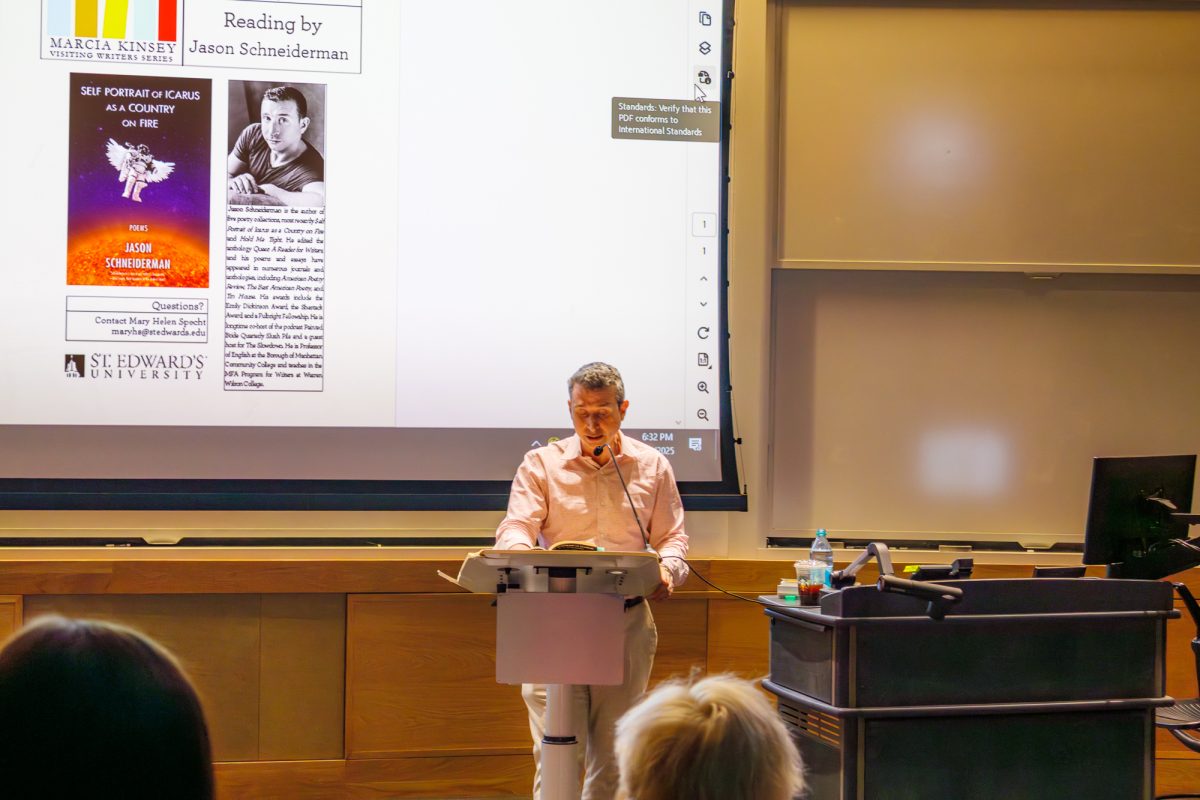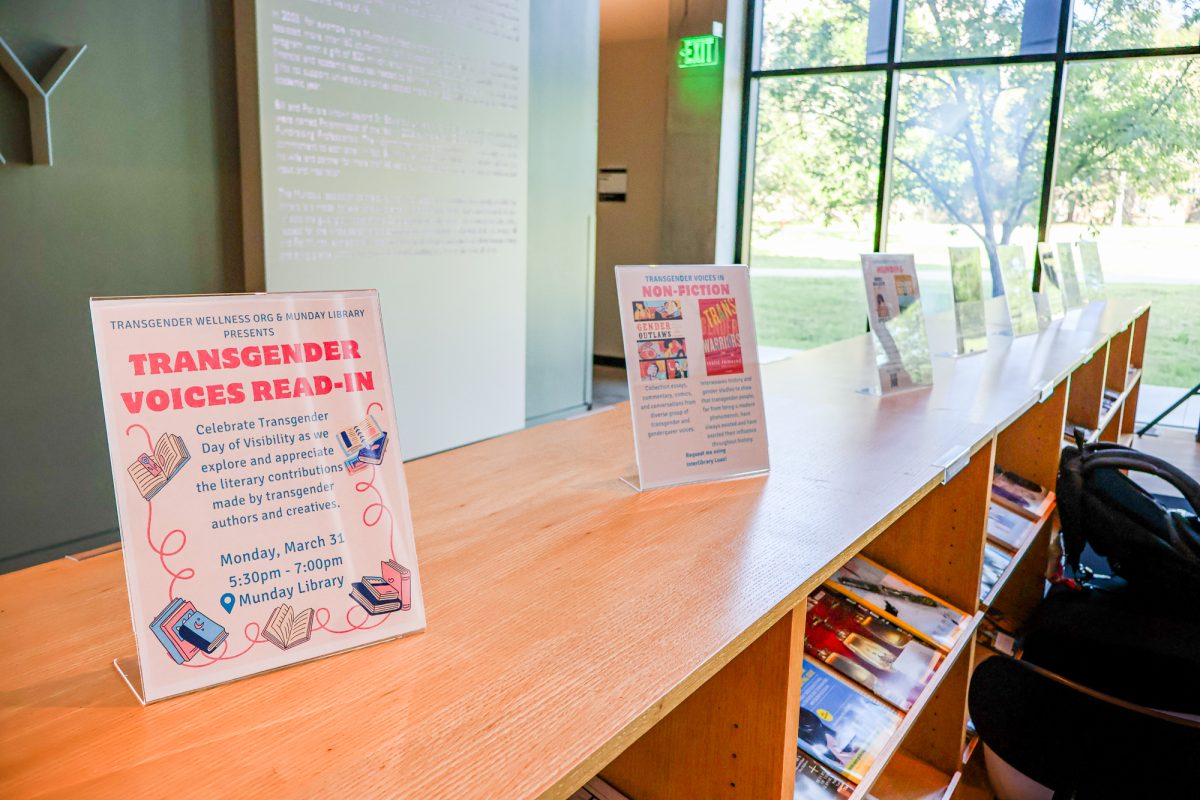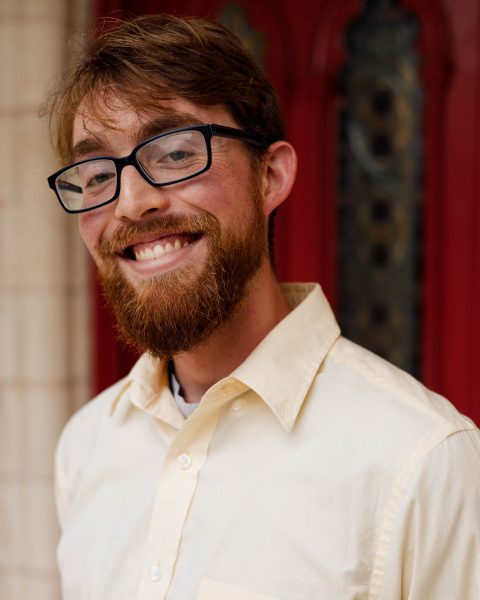Poet, editor, professor and son Jason Schneiderman stands at the front of the room. He’s in Carter Auditorium on April 8, to read poems from his new collection, “Self Portrait of Icarus as a Country on Fire.” He is the latest and final guest of this year’s Marcia Kinsey Visiting Writers Series. The lights on him are low, and finally, he begins.
Schneiderman is an accomplished poet, winner of the Emily Dickinson Award, the Shestack Award, a Fulbright Fellowship and more, who has written five poetry collections and a variety of essays. His newest collection was published last year by Hen Press and named after one of the poems it contains.
“I’m really proud of what I did in the book,” Schneiderman said. “A lot of them are connected in a way that I hadn’t worked with before, so I really became happy with the overall arc of the book. I do think about books very much as a book, each one has a very clear arc.”
Schneiderman writes in a very personal way; there’s a piece of himself in every word he puts down on the page. Each selection from the book he read was fraught with personal stories and imagery tied to his life. He told me that his mother is the figure who comes up the most in these stories.
“I won’t even realize that it’s happening,” Schneiderman said. “I’ll start reading a poem, and I’ll be like ‘oh, there’s my mom.’ She just seems to be a very strong influence. I think that’s sort of normal; your parents are trying to figure you out from the time that you’re born, but you’re also trying to figure them out. I seem to have made that a lifelong project that continues to extend across the books.”
The audience could feel these undertones and emotions. Every time Schneiderman read a new piece, the web of connections between him, his mother, New York, imagery like blood and Greek mythology and love grew and became visible.
Schneiderman often focuses on love, or the lack of it; love for his mother, love in romance – love for himself. He said that his first book was anchored by falling in love; his latest is anchored by his recent divorce.
“It’s not the same as falling out of love,” Schneiderman said. “But it is, kind of, the end of that love story. Love is, and has been, a very central concern; in a sense it’s embarrassing, because, like ‘what does this even mean?’”
Schneiderman is a thoughtful poet, and that reflection and intention are woven throughout his poetry. He is, of course, a professor, son, lover and human too, but his poetry has a way of sneaking through the barriers of the heart that is particularly thought-provoking.









